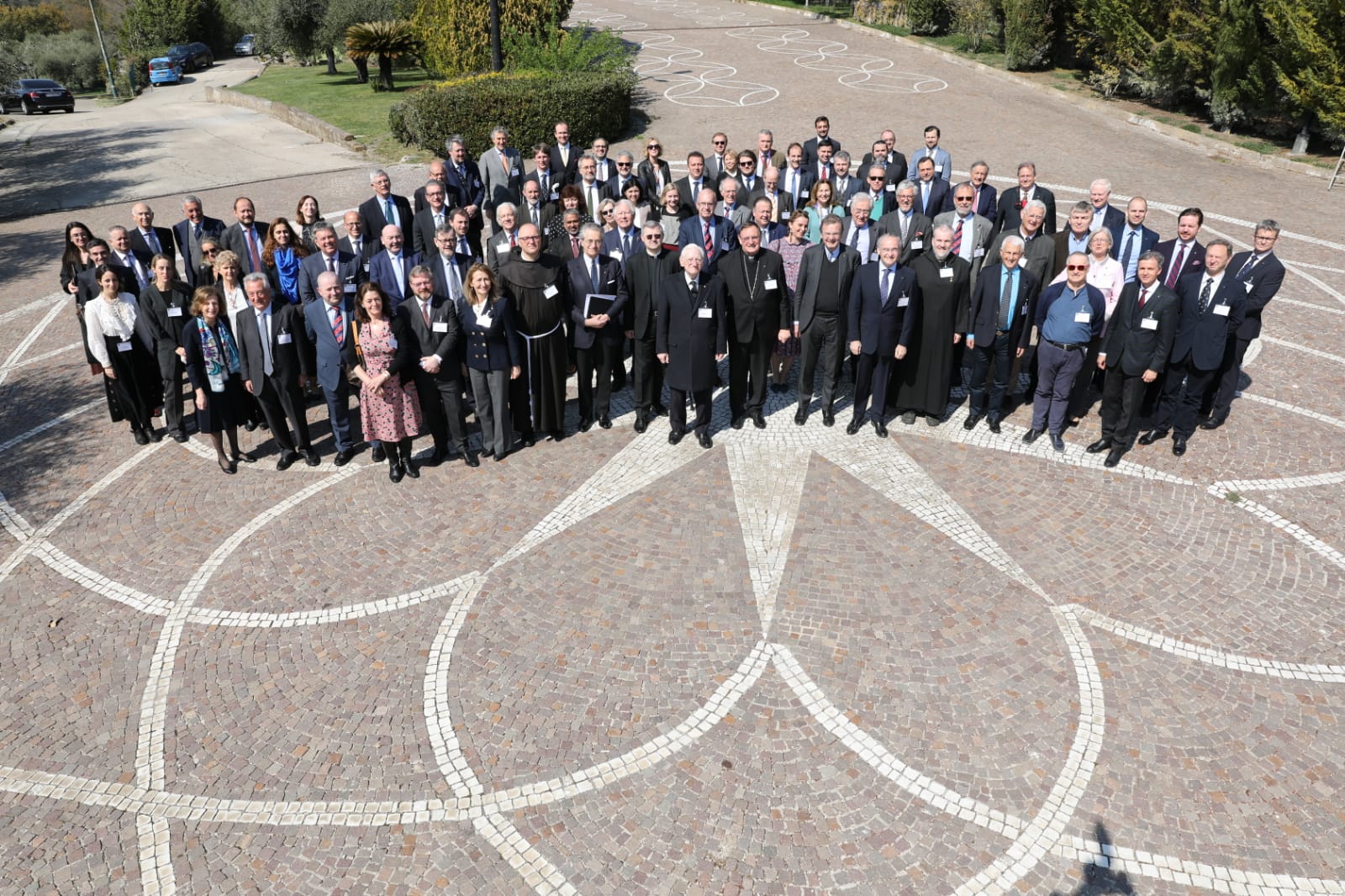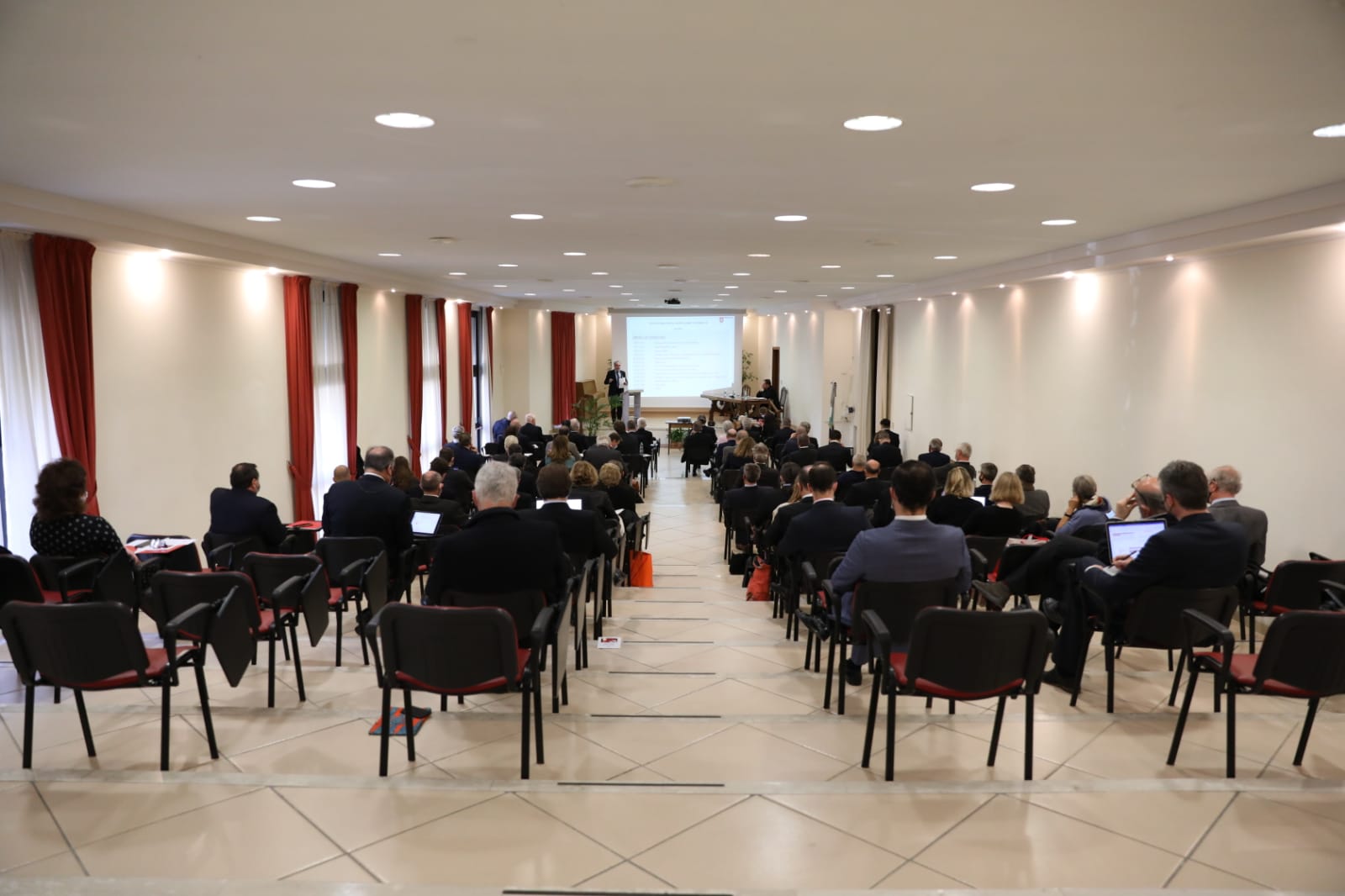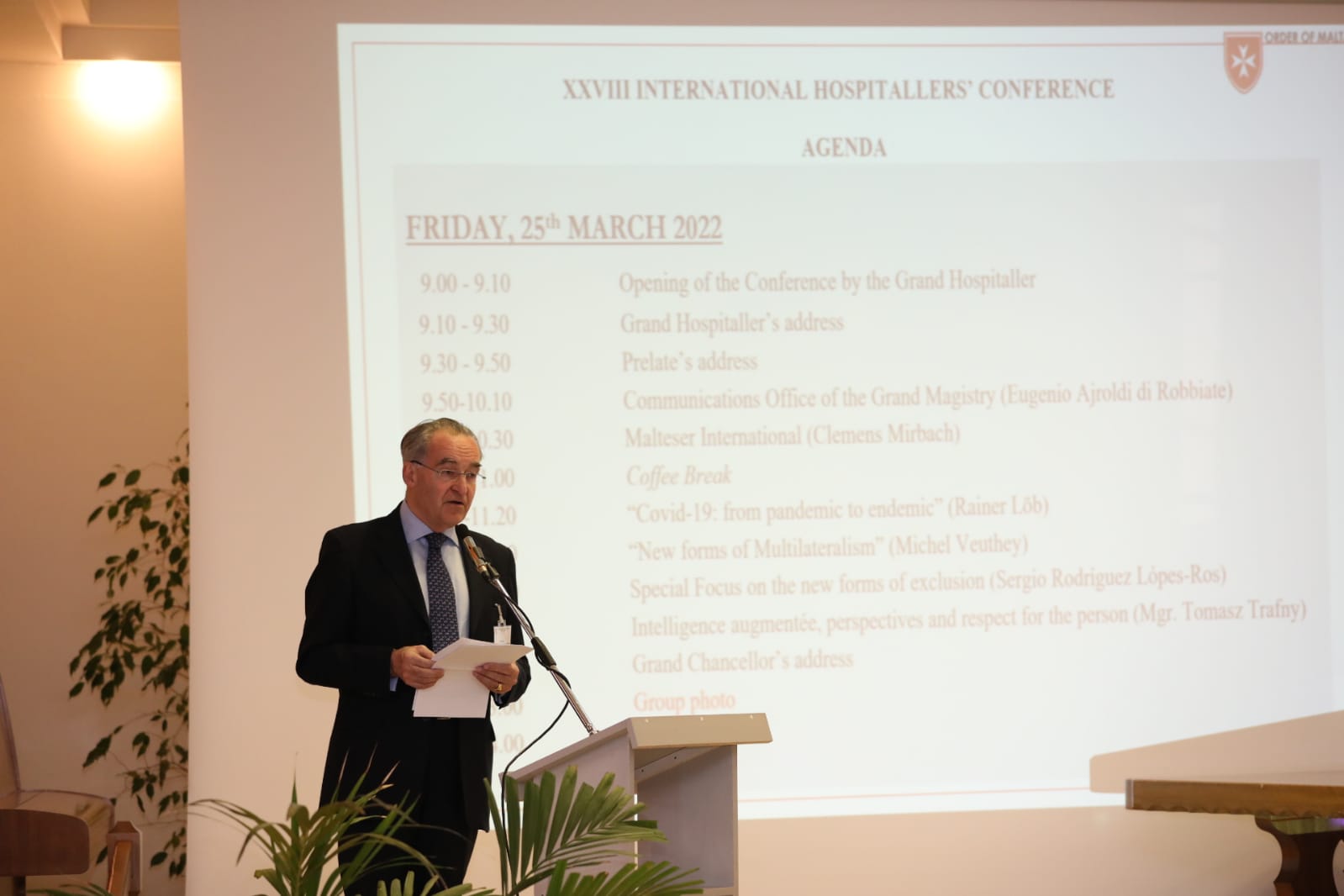The 28th Hospitaller Conference opened today in Sacrofano, a few kilometres from Rome. Some 100 participants including national association’s hospitallers and representatives of the Order of Malta’s many relief and volunteers corps attended travelling from as far as Australia and the United States. The conference is the first to take place since the Covid pandemic outbreak two years ago as the Grand Hospitaller Dominique de La Rochefoucauld-Montbel recalled in his opening remarks.
The war in Ukraine and the humanitarian crisis were at the heart of the first day of the conference, with an overview of the main actions put in place by the Order’s Grand Priories, associations, relief corps and by Malteser International, the worldwide relief agency of the Order of Malta. Staff from the Order of Malta in Ukraine was also present and gave a touching account of the dramatic situation unfolding in the country.
A special meeting between Malteser International and the Order of Malta’s Associations and Relief Corps working to assist the Ukrainian population was held. Logistics, transport, coordination, stress management, information exchange and long-term plans were among the topics discussed.
The Grand Hospitaller addressed the multiple crisis we are facing and how the Order of Malta has managed to confront these by swiftly adapting and taking action. “We all know that the strength of the Order consists in recognising the new needs, and adapting our services to the people in need, always keeping our identity and our principles firmly solid” the Grand Hospitaller stated, stressing the speed with which the medical programmes but also the diplomatic network of the Order of Malta have developed and adapted to address the complexities of this particular moment in time. External speakers who attended the conference and focussed on complex themes to consider: diplomatic multilateralism by Michel Veuthey, new forms of exclusion by Sergio Rodríguez Lópes-Ros and an ethical approach to artificial intelligence by Msgr. Tomasz Trafny.
In his address the Grand Chancellor of the Order of Malta, Albrecht Boeselager, emphasised the rising role faith-based institutions are having within the diplomatic field. “Over the past years there has been a rising acknowledgment of the role faith leaders can play in conflict and crisis areas” Boeselager stated, illustrating the main focuses of the Order’s diplomatic network, these being migration and refugee crises, human trafficking and the role of religion in diplomacy and in the humanitarian field.
The pandemic and the consequences on the social fabric were largely discussed by the hospitallers, each highlighting the projects and challenges faced by the national associations with an emphasis on the capacity of the Order to network globally and to share information, as demonstrated in the Doctor to Doctor project launched in March 2020 with the aim of promoting knowledge and understanding of the pandemic.
As the Prelate of the Order of Malta Monsignor Jean Laffitte noted: “In the context of the Order of Malta all the acts we perform are oriented towards the absolute respect of the life of the sick and the poor and of their personal dignity. Any attack on the physical integrity is a personal offence”. Monsignor Laffitte’s words were echoed by one of the doctors of the Order of Malta in Germany who was in forefront during the pandemic working closely with hospitalised patients.
The Hospitaller’s conference will continue until Sunday morning with focused workshops on topical themes such as involvement of young volunteers,spiritual dimension of the works, volunteers commitment and fundraising.




















